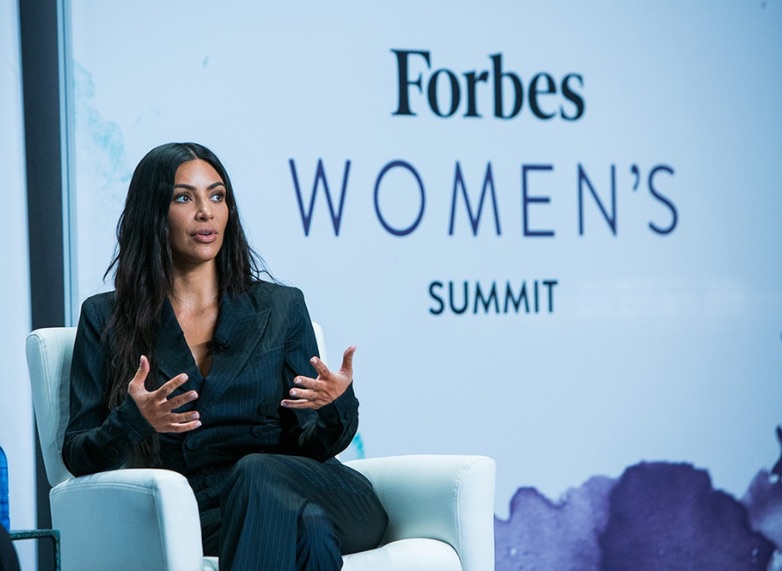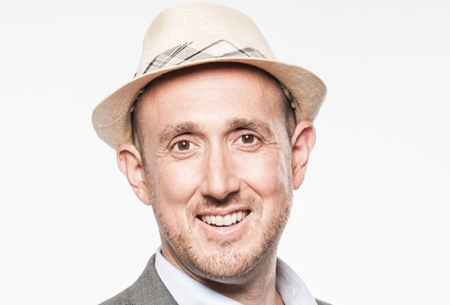An Interview with Randall Lane
By Ofir Nachmani, CEO, IOD
This May, 700 young entrepreneurs and entrepreneurial leaders will gather in Israel from all corners of the world for the first Forbes 30 Under 30 global event. Recently, I conducted a Q&A session in Tel Aviv with Randall Lane, Forbes’ Chief Content Officer and originator of the Forbes 30 Under 30. The annual listing features 600 carefully selected professionals under 30, from 20 different industries.
In addition to learning more about the upcoming 30 Under 30 global event, we explored Lane’s views on young entrepreneurs and Forbes Media’s consisten position as a thought leader in the media industry for more than a century.
I know that last year Forbes celebrated its 100-year anniversary. That’s a really impressive milestone – congratulations! Where do you see Forbes 10 years from now?
Forbes has never been stronger than it is now. There’s a lot of disruption in the media area. Some people think it’s a bad time to be in media, but we have found that if you’re innovative and open-minded…there’s actually never been a better time to be in media.
30 Under 30 is a great example. It’s only been around six years, but it’s pushing almost 10,000 people around the world who have made the list. It’s an incredible community.
At Forbes, we look at every platform and ask, “How do we re-invent the brand for this platform?” So where I see Forbes in 10 years? On platforms we don’t even know exist yet, doing what we’ve always done, which is to be the beacon for entrepreneurial thinking, for entrepreneurs, and how to succeed.
What was the inspiration for 30 Under 30?
I was a young entrepreneur myself. I quit Forbes when I was 28 years old to start two [media startups] for which I raised $36 million. The idea of creating a credential for young entrepreneurs was very exciting to me at that time, but this would not have worked 20 years ago. Now is the first time in history that it’s not only not a disadvantage, but actually an advantage to be young. Whereas in the past, you were expected to spend decades proving yourself before starting a new venture or endeavor, today people under 30 — who grew up with smartphones and with the internet — are able to innovate solutions that a person even a little bit older wouldn’t be capable of envisioning. People in their teens are raising millions of dollars from VCs. That couldn’t have happened 20 years ago.
Register for the Forbes 30 Under 30 Global Event.
Another important advantage of being a young entrepreneur today is that they don’t fear failure…
Right, and today there’s even an “honor” to failure. The idea that it’s okay to fail is why America and Israel have an advantage and why a lot of European countries have a disadvantage (but they’re improving in that area). We see over and over again that cultures that embrace failure succeed. If you’re 24 and think, “if I fail my life is ruined,” you’re not headed towards innovation. But if you’re 24 and think, “if I fail, I’ll get a job at IBM or Microsoft and learn and then I’ll try again in a few years,” then innovation can flourish.
That said, fewer college students these days are thinking “when I get out of here I want to get a job at a big bank or a big consulting company.” Those are certainly good jobs and they used to be really sought-after. MBAs from Harvard would line up to apply for those kinds of jobs. But now they want to be Mark Zuckerberg or Evan Spiegel. It’s the coolest thing in the world if you’re young to be an entrepreneur. And especially so to be on the Forbes 30 Under 30 list.
But aren’t they living under a delusion? The statistics show that most of them will fail.
Sure, but they fail “up” because there’s nothing traditional firms like more than someone who thinks entrepreneurially. There’s no downside to being an entrepreneur. If you get the funding and you learn, you might succeed — or you’ll learn a lot that will help you with the next gig.
IOD (iamondemand) has deep, hands-on expertise
in cloud computing, DevOps, cybersecurity, Enterprise IT, and mobile.
To learn more about how we can support your tech company
with research and content creation, contact us.
Let’s get back to Forbes a bit. Over the last 100+ years, what have been some of the major milestones?
Forbes Magazine first came out in 1917. The magazine survived the depression, as well as decades when entrepreneurship wasn’t so big, like the 1930s and the 1950s. Forbes took a huge step forward in the 1980s with the Forbes 400 list, the billionaire rankings. Forbes, all of a sudden, became one of the top ranked magazines in the world when measured by ad pages. The magazine’s slogan in the 1980s was “the capitalist tool” which was a play on how the Soviets viewed capitalism during the Cold War. At the time, the magazine was under the leadership of B.C. Forbes’ son Malcolm, who unapologetically embraced capitalism and the idea of success. He believed making millions of dollars was good, especially if the money is then used to create more opportunities, good jobs, and so on.
Another leap forward was being early to embrace the internet. It wasn’t easy and there were failures along the way, but Forbes Media was a pioneer in digital technology and has been a leader in terms of programmatic ads, native advertising, a robust website, mobile enabling. We are a tech company as well as a media company.
What is the next milestone?
Internationalization. Over the last five to ten years, Forbes has gone from less than 10 foreign editions to 40. There’s a Forbes Israel, there’s a Forbes Kazakhstan, there’s a Forbes Japan, there’s a Forbes Vietnam, as well as Forbes Indonesia, Forbes French Africa, Forbes Brazil, and Forbes Benelux.
So the Forbes brand has truly become global and one of the advantages of that is we’re going to be bringing hundreds of men and women entrepreneurs from the whole world to Israel for this first ever 30 Under 30 global event.
How do you see the role of women in the entrepreneurial world?
40% of the 30 Under 30 visitors coming to Israel are women. It’s one of the most gender-balanced events in the world. 30 Under 30 is a true meritocracy. It is diverse in every aspect, whether it’s race or religion or gender or sexual orientation. It is tolerant. It doesn’t look to who your parents were, it embraces ideas. The people coming and what the room will look like is what every business convention will look like in 20 years, but we’re already there.

I understand there’s going to be a special program just for the women at the event?
We’re going to start off the 30 Under 30 global event in Tel Aviv with a program just for women, to help come up with solutions that will accelerate the progress of women in the tech industry. Also, we’re inviting women attendees to be the ones to ring the opening bell at the Tel Aviv Stock Exchange, sending a strong message about the future of technology.
How does Forbes see itself shaping the future?
With 30 Under 30 we have an important opportunity to set the agenda for where business is going in the next 20 years. These young entrepreneurs are the business leadership of the future.
The role of a brand like Forbes is not only to respond to its readers and users, but also to lead them. We have more people reading Forbes in print than at any other time in the history of Forbes. We have more people reading Forbes online than ever – 60 million plus, with 9 million just in the U.S. in terms of print readership. And then we have these editions around the world.
What are the expectations for future growth?
We want to continue growing every year. But the key to your question is about leading. Forbes has always been about having an opinion. That’s why Forbes has done well when others have had a harder time. Basic information has become a commodity. You can get it anywhere, you don’t know the source — and you don’t care. But Forbes has a point of view. Everyone knows that Forbes stands for success, it stands for billionaires, it stands for 30 Under 30, it stands for leadership, it stands for achievement. We drive all our content through that prism. So when you see Forbes you see success — or lessons from failure that can make you more of a success. Because the brand stands for something and the content backs up the brand, we’re able to continue to grow where others are having trouble.
So the business will be as big as the brand?
The goal is definitely to make the business as big as the brand. We’re witnessing a huge expansion in Asia, we just bought a media company in London to expand there and across Europe, we have robust operations in Israel where we just recruited our 4th licensee, and now this upcoming event. We’re trying to be active in all the hotbeds of business and innovation.
Is disruption a dirty word at Forbes?
I love the word “disruption,” but it scares people and it has become a bit of a cliché, it’s overused. Forbes has always been in favor of the idea of creative destruction. The idea that we can create new things and don’t have to be afraid of doing things in new ways is very healthy.
Israel succeeded because of that. Every year I come back and see the changes, it’s amazing.
What are your final words for the under-30 Israeli market?
This is going to be the greatest gathering of young business leaders in the history of the world and it’s cool that we’re coming to the most historic and the most entrepreneurial country in the world. It’s a really nice fit. We’re going to expose so many people to Israel – three quarters of the participants have never been to Israel. It’s going to be an amazing experience for them and an amazing event that the whole world will be talking about.
IOD will be covering the 30 Under 30 event in Tel Aviv. For more information, check out the official Forbes announcement and get your ticket for the event.








